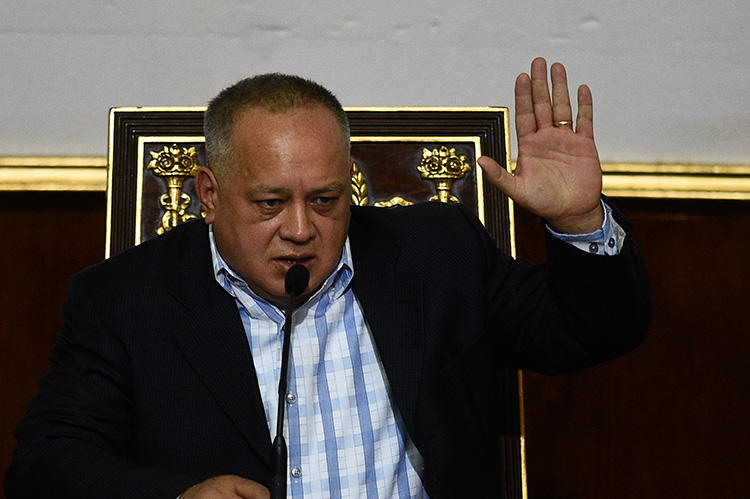Bogotá, Colombia, June 7, 2019–The Committee to Protect Journalists today condemned a decision by the Venezuelan Supreme Court, which according to news reports ordered the independent news site La Patilla to pay US$5 million damages to a former vice-president as part of a civil defamation lawsuit.
A lower court ruled in June 2017 that La Patilla caused “moral damage” to Diosdado Cabello, a former vice president and close ally of President Nicolás Maduro, and ordered it to pay damages of about US$500,000, CPJ documented at the time. The Supreme Court on June 4 rejected La Patilla’s appeal and ordered it to pay Cabello 30 billion bolivars (US$5 million), according to reports.
Carlos Correa, director of the Caracas press freedom group Espacio Público, told CPJ that it was highly irregular for the Supreme Court to increase a figure and said that the $5 million judgment could force La Patilla out of business.
“The exorbitant damages imposed on La Patilla is nothing more than a thinly veiled attempt to bankrupt and shut down a critical outlet,” said CPJ South and Central America Program Coordinator Natalie Southwick in New York. “This troubling ruling is the latest example of how the Venezuelan judicial system is being used to retaliate against critical media.”
The civil defamation complaint relates to a 2015 article by the Madrid daily ABC that La Patilla republished. The article alleged Cabello was connected to a drug trafficking ring. Cabello denied the allegations and announced in April 2015 that he had filed a defamation lawsuit against La Patilla and two Venezuelan newspapers that republished the ABC report.
La Patilla, based in Caracas, was launched in 2010 by Alberto Ravell, a Venezuelan journalist who also co-founded Venezuela’s Globovisión TV station. La Patilla is one of the country’s most popular news sites, according to website traffic data collected by Alexa, the Amazon virtual assistant. Ravell and La Patilla have been critical of President Maduro and his predecessor, Hugo Chávez, who ushered in the socialist revolution in 1999.
Ravell, who works as communications director for the opposition-controlled National Assembly, responded to the Supreme Court’s decision on Twitter, saying: “Diosdado: Your judicial terrorism will not intimidate me and will not exonerate you of your crimes.”
There was no immediate response from Cabello, who is president of Venezuela’s National Constituent Assembly which is charged with writing a new constitution. Calls to his office at the assembly were not answered.
